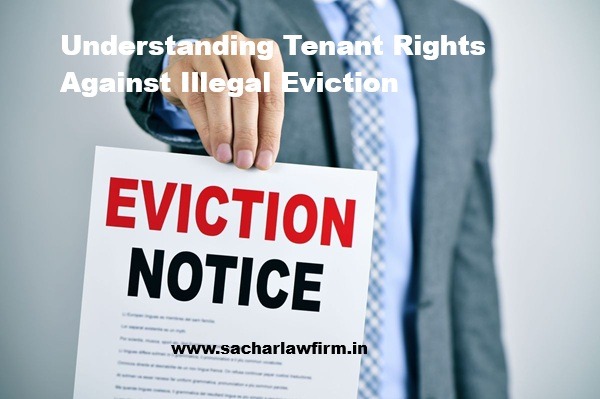AdVocate harshit Sachar | chamber no: 617 | district courts ludhiana | 2817 gurdev nagar ludhiana | ✆+91 7889228369
Understanding Tenant Rights Against Illegal Eviction
Learn how the law protects tenants from unlawful eviction and what remedies are available.
PROPERTY LAWSCIVIL LAWS
Advocate Harshit Sachar, Ludhiana Mob +91 7889228369
8/29/20251 min read


Eviction disputes between landlords and tenants are one of the most common issues brought before courts. However, the law provides strong protection to tenants against unlawful eviction.
A landlord cannot simply throw a tenant out without following due legal process. For eviction, proper notice must be given, and in many cases, the landlord is required to file a case before the court or rent controller. Forceful eviction, disconnecting utilities, or harassment by the landlord are considered illegal and actionable under law.
Tenants have the right to peaceful possession of the rented premises until the tenancy legally ends. If a landlord attempts to evict without due process, tenants can approach the court for an injunction order and claim damages for harassment.
Eviction Process under Indian Law
Apart from the statutory grounds for eviction, courts in India also emphasize the principle of natural justice. This means a tenant must be given a fair opportunity to present their defense before eviction is ordered. Even in cases of default in rent or unauthorized use of property, the landlord cannot forcibly evict the tenant without following due process of law. Any attempt at illegal eviction can invite criminal liability against the landlord.
For landlords, obtaining legal advice before filing an eviction petition ensures that all documentation, including rent agreements, notices, and evidence of default, is in order. A well-drafted rent agreement signed at the beginning of the tenancy significantly reduces the chances of prolonged disputes. Advocates specializing in landlord-tenant disputes often help landlords present a stronger case and avoid procedural delays.
From the tenant’s perspective, being aware of their legal rights can prevent wrongful eviction. Tenants can contest eviction petitions where landlords do not have valid grounds, and courts often protect genuine tenants who have been paying rent on time and complying with the lease terms.
Services
Sachar Law Firm – Advocate, Lawyer, Attorney & Solicitor Services in India | Ludhiana, Punjab.
Expert legal advice across various practice areas - Civil, Criminal, Divorce and Matrimonial, Consumer and Corporate laws, Bail Matters, Property Contract Disputes, Insurance claim disputes, cyber Crime cases, Cheque bounce, Family Divisions, Arbitration. Bail Matters, Electricity Board Cases, Appeals before Session court Ludhiana, Marriage certificate, Court Marriage, Succession Certificate Accident Claim (MACT), NRI Legal Matters, NRI Property Matters.
“Get in Touch with Sachar Law Firm”
Quick Links
© 2025. All rights reserved.
Advocate Harshit SACHAR
Legal Blog
2817, 1st Floor , Gurdev Nagar, Ludhiana, Punjab -141001
Address: Office Cum Res:
Corporate Liquidation and Recovery Litigation
☎️ 0161 7965410
